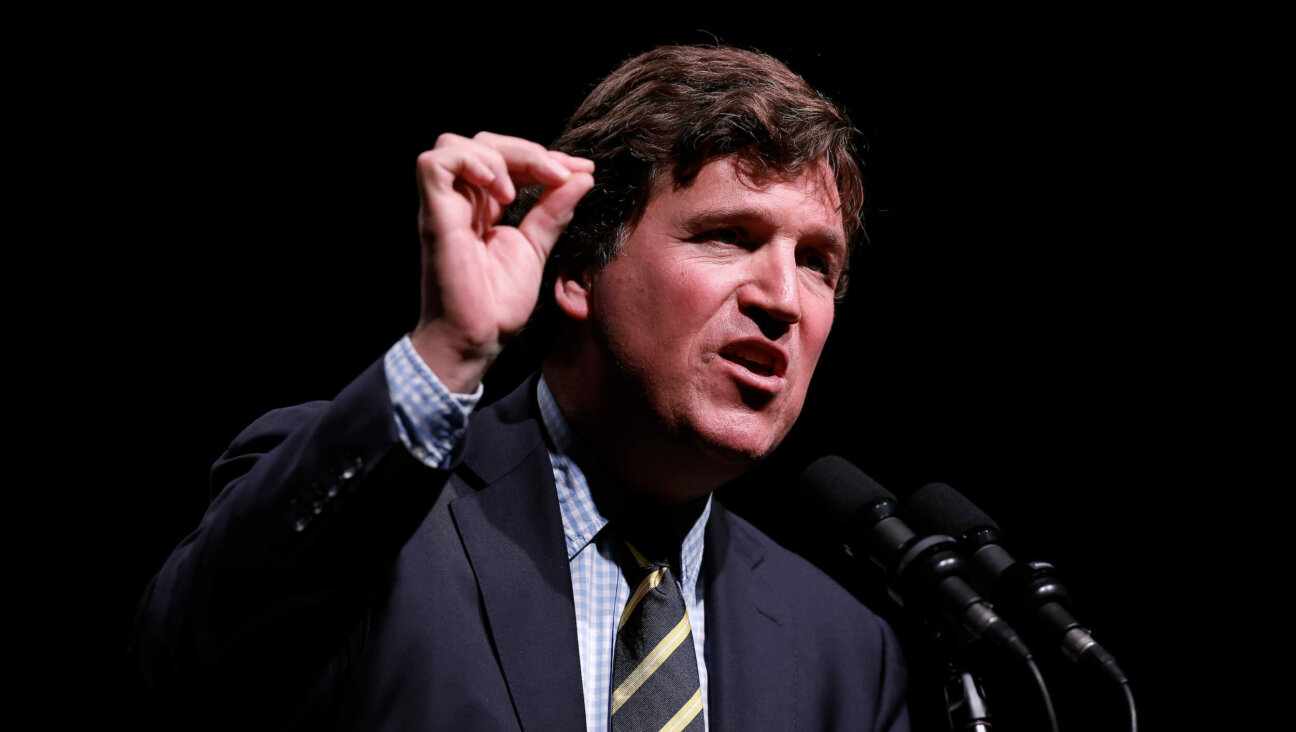Jewish Jesus Conference Asks, ‘Who Invited You?’
This past Sunday, the Web-based culture organization Nextbook sponsored a daylong New York conference devoted to a subject not often explored in Jewish circles: the life and legacy of Jesus Christ. The novelty of the choice came through already in the program’s impish title: “What’s He Doing Here? Jesus in Jewish Culture.” Sure, Jesus was a Jew, perhaps even history’s most famous one, but he nevertheless represents something else, too, something profoundly, essentially un-Jewish. And so, with an impressive roster of thinkers from disciplines ranging from literature and history to music and art, Nextbook set out to ask: Who was Jesus and what place, if any, does he have in the Jewish tradition?
The Jewish world has long harbored a kind of guilty fascination with Christ, but, as a number of conference participants pointed out, interest in the historical Jesus — in Jesus the Jew — is of relatively recent vintage. Dartmouth University historian Susannah Heschel, who was paired with the chief rabbi of Rome, Riccardo Di Segni, for a panel on “Jesus and the Rabbis,” described the birth of the historical Jesus as the work, in part, of 19th century German Jewish reformers looking to draw a contrast between Christianity and Christ’s own religion, with the latter being a kind of precursor to Reform Judaism. Boston University bible scholar Paula Fredriksen, as part of a panel on historical and anachronistic understandings of Jesus, identified the burgeoning of the field of Jewish studies as a new context for understanding early Christianity. And Leon Wieseltier, literary editor of The New Republic, though speaking more of Jewish messianism than of Jesus, nevertheless pointed to Zionism and the Holocaust as factors that have had a hand in changing perceptions of Jesus’ Judaism.
The program was enormously ambitious, chutzpadik almost. Would anyone think of devoting a one-day conference to the subject of, say, God (which, after all, is what Jesus is to many). What is more, in assessing Jesus’ legacy, we’re talking about 2,000 years of Western history. But, as Jonathan Rosen, editor of Nextbook’s Jewish Encounters book series, helped clarify in an interview with the Forward, Jesus, for Jews, is not a central figure. “He’s a marginal figure in Judaism,” Rosen said. “A one-day conference devoted to a marginal figure in Judaism who nevertheless is a central figure to much of the world had a kind of logic to it.”
The immediate impetus behind the conference, organizers said, was something quite recent: Nextbook’s publication, earlier this year, of a new biography of Marc Chagall by Tufts University professor Jonathan Wilson. Chagall, in Wilson’s telling, was ambivalent about his Jewishness and obsessed with the image of Christ, whom he sometimes depicted in Jewish garb. According to Wilson, who was interviewed at the conference by ARTnews executive editor Robin Cembalest, Chagall “lamented the schism that detached Jesus from the Jewish family” and “painted crucifixion scenes throughout his long life.”
Some of the day’s discussions had a chicken-and-egg quality to them. In a session on the subject of Jewish suffering, Nextbook’s Rosen asked his three co-panelists — journalists Judith Shulevitz and Ruth Franklin and Yale historian Ivan Marcus — whether the Jewish conception of suffering is a “reabsorption of things native to Judaism” or something that “has been absorbed from another religion.” Marcus’s answer was characteristic of the day’s heterodox spirit. “Both,” he said.
In taking Jesus and placing him in Jewish contexts, the conference was, in a sense, an attempt to take the foreign, the strange, and make it familiar. Ironically enough, though, the opposite was often the case. Mixing seemed to take the familiar and make it strange. In the eyes of some of the day’s speakers, this was a good thing. Fredriksen took pains to emphasize just how different Jesus’ Judaism was from even the Judaism of the fourth century, to say nothing of the Judaism of the 21st. “If we’re doing our job right,” she said, “we’ll hardly recognize the figure we’ve reconstructed.”
Wieseltier, who appeared with the author and onetime priest James Carroll, spoke in a similarly counterintuitive vein. Jewish messianism, he said, is not a radical idea. It’s not a form of utopianism. “It’s a correction, not a transformation,” he said. Messianism “was never as central as we think it was. What is central is living the present.”
The day’s purview was immense, perhaps dizzyingly so. At times one wondered if the day’s topic offered a common language, a lingua franca. Asked if he thought this was a problem, Rosen seemed unworried. “Trying to forge a lingua franca is what Nextbook is about,” he said. “Everything is the beginning of a conversation. Nothing is ever the last word. It’s only the first word.”
Gabriel Sanders is the associate editor of the Forward.















